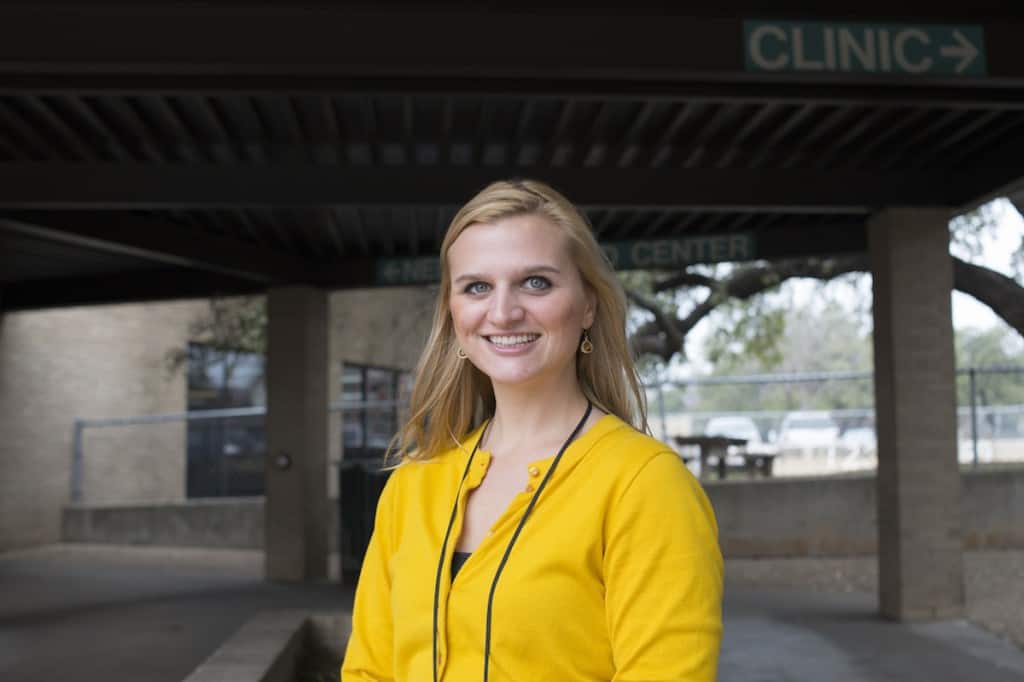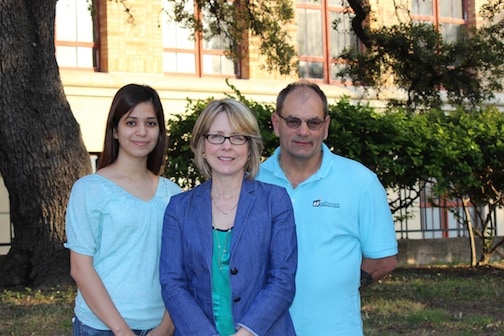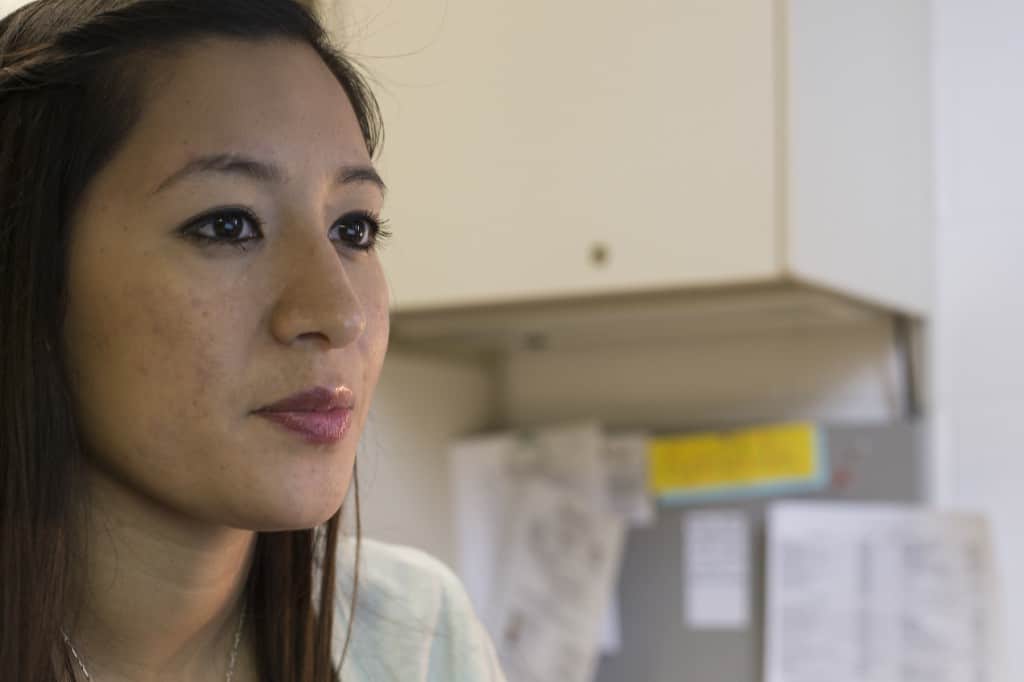Last fall, master’s student Griselda Onofre was interning at a homeless clinic in downtown Austin. As part of her internship, she participated in “team huddles,” where doctors, nurses, and behavioral health specialists got together to discuss patient cases.
“It was very eye-opening to see this interaction,” Onofre said. “One time there was this patient, and the doctor thought she was bipolar. But the patient had also seen the behavioral health specialist, and I had sat down with them during the consultation. At the team huddle, the specialist was able to bring up the other issues that were affecting this patient, and to show that she was not bipolar but just very distressed. It was also interesting to see how patients can open up to someone who is there to listen.”
Onofre is a member of the first cohort of Integrated Behavioral Health (IBH) Scholars at the School of Social Work. IBH Scholars are outstanding master’s students in the clinical concentration who demonstrate commitment to work in inter-professional teams in health care settings.
“A grant from the federal government is funding this program,” explained Robin Smith, Coordinator of the IBH Program. “It allows us to train our students in the way of the future for health care: teams of doctors, nurses, and social workers collaborating to integrate behavioral health with other forms of health care, and have the best outcomes for patients.”

The School has partnered with Austin Travis County Integral Care (ATCIC) and the federally qualified health center CommUnity Care to secure field placements in integrated health care settings, like the clinic where Onofre was placed.
IBH scholar Eva Jane Watkins was also placed in the ATCIC homeless clinic last fall.
“Being homeless is probably one of the most traumatic things you can go through. So it’s really great to have mental health services at the homeless clinic” Watkins said. “This semester I will be at a CommUnity Care clinic, where I will be shadowing two behavioral health counselors, and also start seeing patients in supervised one-on-one counseling sessions.”
As part of the IBH program, students must take an interprofessional education (IPE) course, where they work in teams with students from nursing, medicine, pharmacy, and psychology.
“The IPE course was very useful to learn the vocabulary of the other professions,” said Sonia Alvarez, another member of the IBH first cohort. “It was also interesting to see the misconceptions about social work; many students in the other disciplines didn’t know that it is a counseling degree. Or in my case, I didn’t’ know much about pharmacy as a profession. I think it was a great learning opportunity for everyone. And it taught me how to advocate for social work.”

IBH Scholars must also take a course on Motivational Interviewing (MI), a brief behavioral intervention that has a strong evidence-base for effective use in medical settings. David Dunkin found MI extremely valuable when working with clients at the CommUnity Care clinic where he was placed as part of the IBH Scholars program.
“MI is great to help clients self-determine where to go in their treatment needs,” said Dunkin. “For example, one of my clients has had several days of sobriety, but he has been in a restricted environment. MI interventions will be essential to help him as he moves into a more open environment.”
In addition to preparing students to work in integrated health care settings, the IBH program emphasizes the provision of culturally competent services to Latinos and military personnel, two high-demand and high-need populations in Central Texas. Onofre, Watkins, and Alvarez are all fluent in Spanish, which they are finding valuable at their field placements. Dunkin is a veteran, and Onofre is a member of the National Guard, attending The University of Texas under the ROTC program.
The current health care reform, with its focus on integrated and preventive care, makes the role of behavioral health specialists more important than ever.
“Health care reform has brought a clear recognition that mental health is essential to good health,” said ATCIC CEO David Evans. “Behavioral health specialists are essential to perform screening, treatment and consultation in primary outpatient clinic service, with the final goal of achieving patient-centered care.”
Posted March 24, 2014. By Miguel Gutierrez, Jr.


